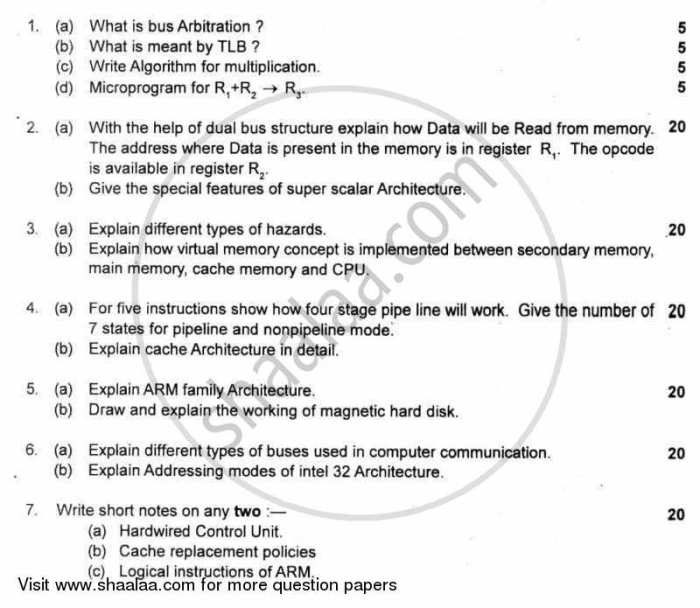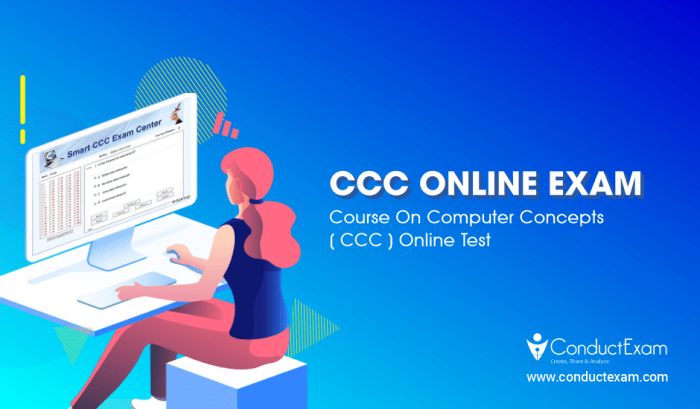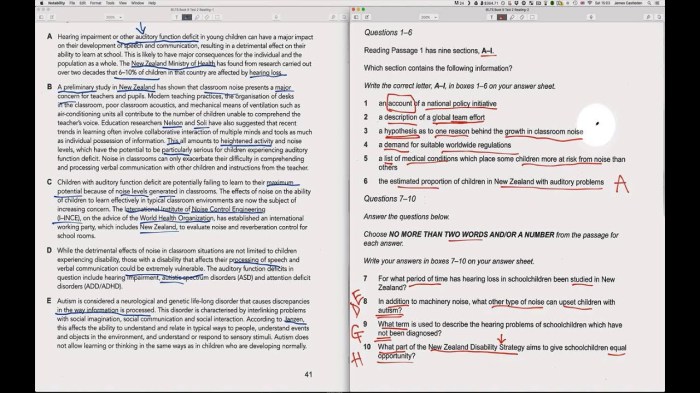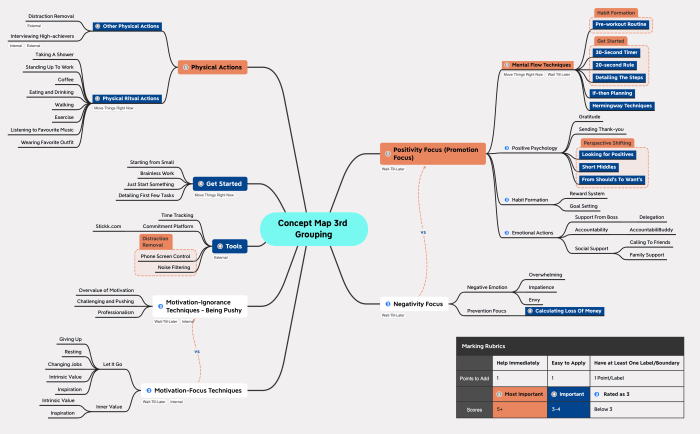Module 12 Computer Concepts Exam: A Comprehensive Guide to Success delves into the intricacies of this pivotal assessment, providing students with a roadmap to excel in their understanding of computer science fundamentals. This guide serves as an indispensable resource, offering a detailed overview of the exam’s structure, key concepts, preparation strategies, and sample questions to equip students with the knowledge and confidence they need to succeed.
The content of the second paragraph that provides descriptive and clear information about the topic
Module 12 Computer Concepts Exam Overview

The Module 12 Computer Concepts Exam is a comprehensive assessment of the knowledge and skills acquired throughout the course. It evaluates students’ understanding of fundamental computer concepts, their applications, and their impact on various aspects of life.
The exam covers a wide range of topics, including computer hardware and software, operating systems, networking, security, and emerging technologies. Its primary purpose is to assess students’ ability to:
- Identify and describe the components of a computer system
- Understand the functions of operating systems and their role in managing computer resources
- Explain the principles of networking and the different types of networks
- Recognize and mitigate cybersecurity threats
- Discuss the latest advancements in computer technology and their potential applications
Exam Structure and Format: Module 12 Computer Concepts Exam
The Module 12 Computer Concepts Exam comprises various question types, including multiple choice, true/false, and short answer questions. The exam duration is 90 minutes, during which candidates are expected to complete 50 questions.
Grading Scheme and Passing Criteria
The exam is graded on a scale of 0 to 100, with a passing score of 70%. The grading scheme is as follows:
Multiple choice questions
1 point each
True/false questions
1 point each
Short answer questions
2 points eachCandidates must achieve a minimum score of 35 points to pass the exam.
Key Concepts and Topics

The Module 12 Computer Concepts Exam tests candidates’ understanding of fundamental concepts and topics in computer science. These concepts are essential for a comprehensive grasp of the field and its applications.
Key concepts covered in the exam include:
- Computer hardware and software
- Operating systems
- Networking and the Internet
- Data management
- Security and ethics
Each of these concepts plays a crucial role in the functioning and utilization of computers. Understanding these concepts is essential for individuals seeking careers in computer science or related fields.
Computer Hardware and Software, Module 12 computer concepts exam
Computer hardware refers to the physical components of a computer system, such as the processor, memory, storage devices, and input/output devices. Computer software, on the other hand, refers to the programs and instructions that enable the hardware to perform specific tasks.
Hardware and software work together to create a functional computer system. Hardware provides the physical foundation for the system, while software provides the instructions that allow the hardware to execute tasks.
Operating Systems
An operating system (OS) is a software program that manages the hardware and software resources of a computer system. It provides a platform for running application programs and facilitates communication between the user and the computer.
Common operating systems include Windows, macOS, and Linux. Each OS has its own unique features and capabilities, and the choice of OS depends on the specific needs and preferences of the user.
Networking and the Internet
Networking refers to the connection of two or more computers to share resources and data. The Internet is a global network of interconnected computers that allows users to access information, communicate with others, and conduct business.
Networking and the Internet have revolutionized the way we live and work. They have made it possible for us to connect with people around the world, access vast amounts of information, and conduct business online.
Data Management
Data management refers to the collection, storage, organization, and retrieval of data. Data is essential for any organization, and effective data management is critical for ensuring the accuracy, integrity, and availability of data.
There are various data management tools and techniques available, and the choice of tool depends on the specific needs and requirements of the organization.
Security and Ethics
Computer security refers to the protection of computer systems and data from unauthorized access, use, disclosure, disruption, modification, or destruction. Computer ethics refers to the ethical use of computers and technology.
Security and ethics are important considerations in the use of computers. It is essential to protect computer systems and data from threats and to use computers in a responsible and ethical manner.
Exam Preparation Strategies

Exam preparation is crucial for success in the Module 12 Computer Concepts Exam. Effective strategies include studying efficiently, managing time effectively, and handling stress.
Study Materials and Resources
- Review lecture notes, textbooks, and other course materials.
- Utilize online resources such as videos, simulations, and interactive exercises.
- Attend study groups or work with a study partner to reinforce concepts.
Time Management Techniques
Effective time management is essential for exam preparation. Techniques include:
- Creating a study schedule and adhering to it.
- Breaking down large tasks into smaller, manageable chunks.
- Using time management tools such as planners, calendars, or apps.
Stress Management Tips
Stress can be a significant obstacle during exam preparation. Tips for managing stress include:
- Exercise regularly and get enough sleep.
- Practice relaxation techniques such as deep breathing or meditation.
- Seek support from friends, family, or a counselor if needed.
Sample Questions and Answers

This section provides sample exam questions to familiarize students with the types of questions they can expect on the Module 12 Computer Concepts Exam. Each question is accompanied by a detailed answer and explanation to help students understand the concepts tested.
Key Concepts and Topics
The sample questions cover the following key concepts and topics:
- Computer hardware and software
- Operating systems
- Networking and communications
- Data storage and management
- Security and privacy
Computer Hardware and Software, Module 12 computer concepts exam
Question: What is the primary function of a computer’s central processing unit (CPU)?Answer: The CPU is responsible for executing instructions and performing calculations, serving as the “brain” of the computer.
Operating Systems
Question: What is the difference between a graphical user interface (GUI) and a command-line interface (CLI)?Answer: A GUI allows users to interact with a computer using visual elements such as icons and menus, while a CLI requires users to enter commands using text-based instructions.
Networking and Communications
Question: What is the purpose of a network router?Answer: A network router connects multiple devices to a network and routes data packets between them, ensuring efficient communication.
Data Storage and Management
Question: What is the difference between a hard disk drive (HDD) and a solid-state drive (SSD)?Answer: HDDs use rotating magnetic disks to store data, while SSDs use flash memory, resulting in faster read/write speeds and higher reliability for SSDs.
Security and Privacy
Question: What is the importance of using strong passwords?Answer: Strong passwords help protect against unauthorized access to accounts and sensitive data by making them difficult to guess or crack.
Additional Resources and Support
In addition to the materials provided in this module, students have access to various resources and support to aid their exam preparation. These resources include:
- Online Forums:Engage with fellow students, ask questions, and share insights in dedicated online forums. These platforms facilitate knowledge sharing, peer support, and a sense of community.
- Study Groups:Form or join study groups with classmates or peers to collaborate on exam preparation. Group discussions, shared notes, and collective problem-solving can enhance understanding and retention.
- Tutoring Services:Seek personalized guidance and support from experienced tutors. Tutors can provide targeted assistance with specific concepts, clarify doubts, and offer exam-taking strategies.
For additional assistance or queries, students can contact the course instructor, teaching assistants, or academic support staff. Contact information and office hours are available through the university’s official website or course management system.
FAQ Explained
What is the purpose of the Module 12 Computer Concepts Exam?
The Module 12 Computer Concepts Exam assesses students’ understanding of fundamental computer science concepts, including hardware, software, networks, and programming.
What is the format of the exam?
The exam typically consists of multiple-choice, true/false, and short answer questions, covering a range of topics within computer science.
How can I prepare for the exam?
Effective preparation involves reviewing course materials, practicing sample questions, and seeking support from instructors or study groups.